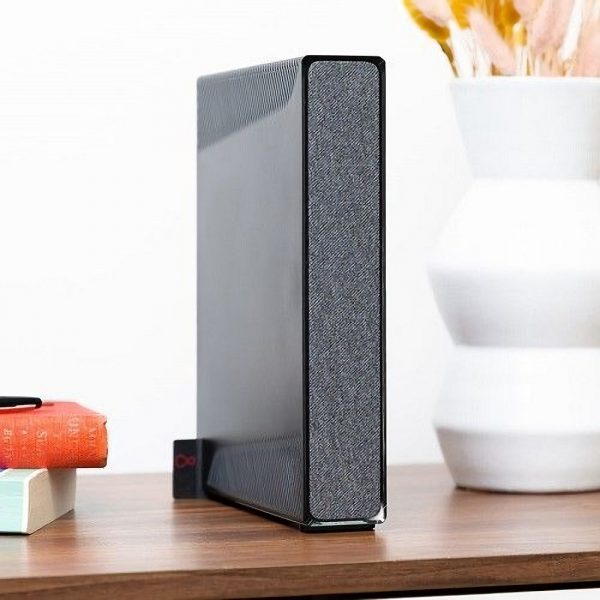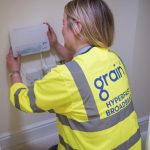ASA UK Ban Virgin Media’s Misleading Fastest WiFi Guarantee Claims

A complaint by Vodafone has prompted the Advertising Standards Authority (ASA) to investigate and ultimately ban a series of adverts for Virgin Media’s (VMO2) UK broadband ISP products after some of them “misleadingly” claimed to be offering the “fastest WiFi Guarantee of any major provider“.
Just to recap. The original guarantee first launched in September 2022 (here) and made headlines by claiming to deliver the “UK’s Fastest WiFi Guarantee” (with a 20Mbps minimum speed) in “every room or money back.” But this ignored that fact that, at the time, one rival network operator – Connect Fibre – had, in June 2022, already made a similar claim by promising a minimum speed of 30 Mbps in every room (here) for the same price.
The debate then took another turn in July 2023 when Sky Broadband launched the “UK’s fastest WiFi guarantee, of any major provider” with their “WiFi Max’s speed guarantee of up to 25mps in every room” for an extra £10 per month (here). Virgin Media then promptly responded to that (here) by boosting their guarantee to 30Mbps at no extra cost (i.e. a minimum download of 30Mbps via WiFi in every room, or get £100 back).
Advertisement
Since then Virgin Media have been continuing to use the “fastest WiFi guarantee” claim, albeit more recently tweaked to be promoted as the “fastest WiFi Guarantee of any major provider” to avoid running into a conflict with smaller networks. But crucially, such guarantees aren’t just about speed, they can also differ in what the guarantee actually gives back to consumers (credits, solutions etc.), which can be harder to compare and this is partly where Virgin Media’s ads went wrong.
Nevertheless, broad performance claims like this have a long history of being banned by the ASA, and so today’s decision to uphold a related complaint should not come as much of a surprise.
ASA Ruling REF: A23-1206573 Virgin Media Ltd
Virgin Media had explained that rather than being a claim that they offered the fastest WiFi, the claim related to their “Wifi Guarantee”, which meant that customers with WiFi Max would be sent up to three signal boosting WiFi pods if they did not obtain download speeds of at least 30 Mbps in every room. If that was unsuccessful, they would receive a one off credit of £100. Other broadband providers also offered similar Wifi guarantees, but they related to speeds of less than 30 Mbps. Virgin Media therefore considered the claim was not misleading. On that basis, they did not provide comparative evidence about the speed of their WiFi and that of the other major providers.
We considered that while some consumers may have been aware of WiFi guarantees, many would not. The difference between guaranteeing the highest speed and offering a guarantee which promised action by the advertiser if a minimum speed was not met was a subtle one and required clear explanation to ensure that consumers were not misled about what was being offered.
We did not consider that the headline claim “Get the fastest WiFi Guarantee of any major provider” would have been understood as Virgin Media intended by consumers, and that, as set out above, a significant proportion would understand it to mean that Virgin Media guaranteed they offered the fastest WiFi service of any major broadband provider.
We acknowledged that the ad included further information about the WiFi guarantee which sought to provide more detail on what they were guaranteeing and how the guarantee worked. However, we considered that this was insufficient to override the impression from the claim that Virgin Media offered the fastest WiFi of the major providers.
We also noted that a box immediately underneath the headline claim “Get the fastest WiFi Guarantee of any major provider” at the top of the page invited users to input their postcode and click to “Check availability”, and that consumers were therefore encouraged to take action on the basis of the claim, notwithstanding that qualifying information appeared underneath. We considered that the headline claim should have been more clearly worded and immediately qualified to ensure that consumers understood the nature of the guarantee.
Therefore, because the claim had not been substantiated as it would be understood by consumers, we concluded that the ad was misleading.
As usual, the ASA told Virgin Media not to show the ads again in their current form and to ensure that they did not imply that they guaranteed the fastest WiFi service of all major broadband providers if that was not the case. The provider began responding to this earlier in the month and has since been switching out claims like “get the fastest WiFi Guarantee of any major provider” for more generic wording, such as “get fast, reliable WiFi gliding through every room or money back“.
In response, Virgin Media have said they’re “surprised and disappointed” by the ruling, as well as finding it “slightly baffling“, but they’d be incredibly ignorant if this really did come as a surprise. The ASA has a long and well documented history of slamming overly broad “we’re the best“, the “fastest” or “most reliable” style claims in ads (search our news), often for a variety of reasons. The simplest solution would be for providers to just avoid them, but the lure of marketing is often too great and, in fairness, Virgin’s guarantee is a pretty good offer.
Advertisement
Mark is a professional technology writer, IT consultant and computer engineer from Dorset (England), he also founded ISPreview in 1999 and enjoys analysing the latest telecoms and broadband developments. Find me on X (Twitter), Mastodon, Facebook, BlueSky, Threads.net and Linkedin.
« Wireless UK ISP Wifinity Brings WiFi to Anchor Hanover Homes
Hampshire UK’s Rural Superfast Broadband Project Concludes »






















































TLDR the ASA felt “Get the fastest WiFi Guarantee of any major provider” could be interpreted as Virgin Media guaranteeing it had the fastest WiFi speed of any provider as opposed to Virgin Media’s WiFi guarantee having the highest speed.
To be fair to Virgin, I would interpret it their way.
So you interpreted the virgin statement as they offer the highest speed guarantee,
I didn’t interpret it as that and if I did I’d see it as them being disingenuous.
They are clearly trying to pull one over consumers with their misleading unclear statement.
Bragging that their guarantee is bigger than a competitor is not really a selling point in the way they’ve done it.
It would be a selling point if they made it clear that that’s what they where bragging about.
I think one should all claims about wifi speed with a very large pinch of salt. There are so many variables that affect wifi performance (eg construction of internal walls) that it is impossible to predict real world performance in any given situation or with any given access point. It’s about time building regs mandated prewired ethernet on all new construction, I believe this has already in some countries (France, maybe?
Thanks, big dave
All perhaps tied up with the fact that Virgin Media’s and NTL’s proposition for the past quarter century was purely about offering a faster service and a big bundle of TV channels, whilst customer service was left to die.
The spread of streaming services and long-since advent of Freeview has killed off much of the advantage VM had in TV content, compared to the days when all we had was five terrestrial channels. The growth of altnets and FTTP is offering more options for customers wanting fast connections, compared to VM’s near monopoly of higher speeds in years gone by.
Problem is, what more can VM offer? Marketing has been about channels and speed for so long they know nothing else, but what can they offer instead? Customer service is grim, value is poor unless you are willing to aggressively play the retentions game. Netflix and Amazon are doing a much better job on original content, if you want a package of scheduled content then Sky can match VM, if you’re after sport then Sky or BT/TNT are better than VM.
Scrabbling around with dubious claims of wifi speed and coverage smacks of desperation.
It has always infuriated me that the “guarantees” in this market are not actually guarantees of performance, they are just guarantees of compensation if you don’t achieve the advertised speed/connectivity.
I would imagine that almost all consumers want “guarantee” to mean that they will get that performance.
Not just this market – guarantees without limits are exceptionally rare.
such a guarantee would be impossible to provide, at least not at significant extra cost (ie a site survey performed by a qualified person)
the compromise of a reasonable number of extenders and money back if it still doesn’t work seems sensible to me.
So, my point is, why allow the word “guarantee” in all the advertising…? they’re not guaranteeing it.
It felt great finally ending my years of Virgin Media and ripping out their cable all the way to the end of my property line.
Now I have 1 gig full fibre for a third of the price and Apple TV.
I can’t wait till that day.
Currently stuck with adsl max or virgin.
Altnets supply the rest of the road but final 5 properties are served by a different cab and polls.
alts are ok, but they disolve as quick as they are created, in the end they’ll all be owned by VM >.<